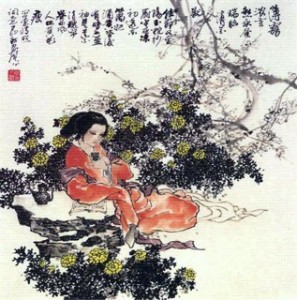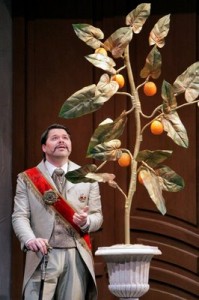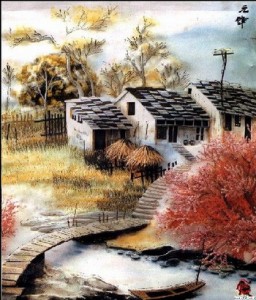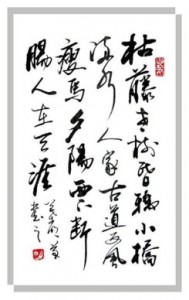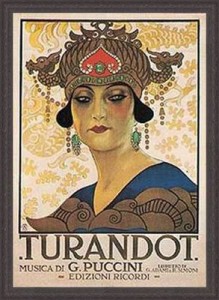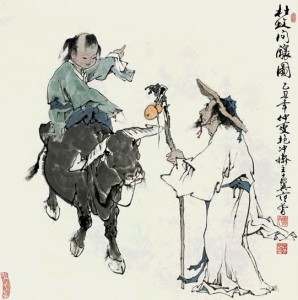哈巴湼拉舞曲 (法) 汉利.美尔压 与 路度维.亚里菲 普词
Mezzo-soprano aria from Bizet’s opera “Carmen”
比才歌剧”卡门”之女中音咏叹調
Sung by Julia Migenes-Johnson: http://www.youtube.com/watch?v=uV9iGv4sKNI
By Teresa Berganza: http://www.youtube.com/watch?v=oby-hCgZLJc&feature=related
By Maria Callas: http://www.youtube.com/watch?v=6fZRssq7UlM&NR=1

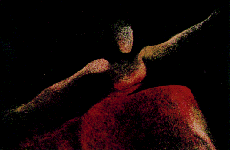
Habenera 哈巴湼拉舞
Tr. YK Chan 陈耀国译
Quand je vous aimerai? 我何时会爱你?
Ma foi, je ne sais pas, 我的天,我怎知道。
Peut-être jamais, peut-être demain. 可能永不,可能明天。
Mais pas aujourd’hui, c’est certain 但不是今天,这是肯定的。
L’amour est un oiseau rebelle 爱情是一只反叛的雀鳥
que nul ne peut apprivoiser, 无人可馴服牠。
et c’est bien en vain qu’on l’appelle, 牠自承拒绝的话,
s’il lui convient de refuser. 你也只是空喚牠,
Rien n’y fait, menace ou prière, 用恐吓或祈求,都无法可行。
l’un parle bien, l’autre se tait: 口善词令者与另沈默寡言者之间
Et c’est l’autre que je préfère, 我喜欢另外那人,
Il n’a rien dit mais il me plaît. 他不做声,我却喜欢他。
L’amour! L’amour! L’amour! L’amour! 爱情!爱情!爱情!爱情!
L’amour est enfant de Bohème, 爱情是吉卜赛孩子,
il n’a jamais, jamais connu de loi; 他永不,永不承认法规;
si tu ne m’aimes pas, je t’aime: 你若不爱我,我爱你:
si je t’aime, prends garde à toi! 你若爱我,你就要自己提防!
Si tu ne m’aimes pas, 你若不爱我,
Si tu ne m’aimes pas, je t’aime! 你若不爱我,我爱你!
Mais, si je t’aime, 但是,你若爱我,
Si je t’aime, prends garde à toi! 你若爱我,你就要自己提防!
Si tu ne m’aimes pas, 你若不爱我,
Si tu ne m’aimes pas, je t’aime! 你若不爱我,我爱你!
Mais, si je t’aime, 但是,你若爱我,
Si je t’aime, prends garde à toi! 你若爱我,你就要自己提防!
L’oiseau que tu croyais surprendre 你以為已把那鳥兒捉住,
battit de l’aile et s’envola … 牠就展翅飞走…
l’amour est loin, tu peux l’attendre; 爱情远離,你可等待;
tu ne l’attends plus, il est là! 你不再等待牠的话,牠就出现!
Tout autour de toi, vite, vite, 环绕着你,快快的,快快的,
il vient, s’en va, puis il revient … 牠來,牠去,然後牠再來…
tu crois le tenir, il t’évite, 你以为把牠抓住,牠就逃去,
tu crois l’éviter, il te tient. 你以为逃避了牠,牠就抓住你。
L’amour! L’amour! L’amour! L’amour! 爱情!爱情!爱情!爱情!
L’amour est enfant de Bohème, 爱情是吉卜赛孩子,
il n’a jamais, jamais connu de loi; 他永不,永不承认法规;
si tu ne m’aimes pas, je t’aime: 你若不爱我,我爱你:
si je t’aime, prends garde à toi! 你若爱我,你就要自己提防!
